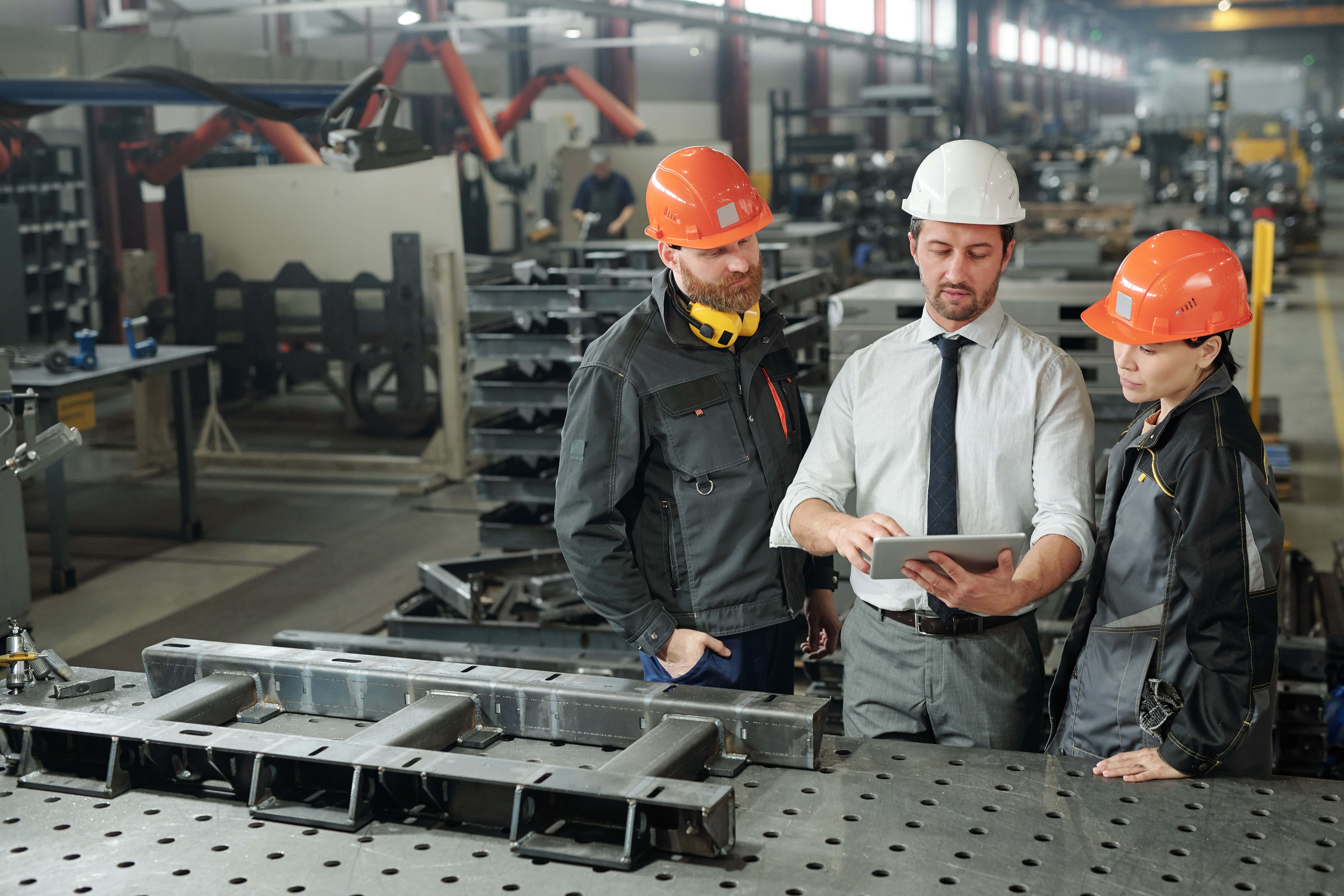Manufacturing management is critical for any production business. Effective planning, organising, and control of production processes are essential for success. In this blog, we'll explore what it involves, the challenges managers face, and strategies for success. Whether you're new or experienced, read on.

The UK manufacturing industry has been through some ups and downs over the last few pandemic-hit years. That said, in 2021, it accounted for 9.8% of the total UK economic output and 8.1% of jobs. Small and medium-sized manufacturing businesses will be crucial to continued growth.
Efficient manufacturing management cuts costs, keeping business owners, customers, and staff happy. But what does manufacturing management involve, and how can you achieve the efficiency your business needs to thrive? Read on to find out.
Content
Defining Manufacturing Management
Managing the Production Process
The Importance of Quality Management
Effective Human Resource Management
Boost Efficiency With Statii MRP
Manufacturing management encompasses every part of the manufacturing process. From the moment a product is designed to the time it leaves the plant, there should be a seamless workflow. In addition, management should help every employee to understand their role and how it relates to the overall goal of the business.
Critical elements of production management include:
The goal of the manufacturing manager is:
Achieving these goals requires careful planning, ongoing monitoring and adjustment, and strict budgeting.
Operation management involves overseeing the design of an assembly that is efficient and keeps costs to a minimum. Inventory management is crucial so that a lack of raw materials does not halt production. On the other hand, production managers must ensure that excess company funds are not tied up in storing inventory for long periods.
One of the significant challenges for all manufacturing businesses is waste. However, it is an unnecessary expense, as tighter control of production methods can often reduce or eliminate it. This is one area where MRP systems can help, as production managers can track every aspect of the manufacturing process in real time.
Just-in-time is a process developed in the 1970s in Japan. It has been used successfully by many companies, including Toyota. It aims to make manufacturing operations slicker and reduce unnecessary expenses. It can be an effective method of manufacturing management.
Some of its core elements include the following:
Just-in-time manufacturing processes can also have a beneficial impact on the workforce. For example, employees may be trained to carry out multiple functions. This makes their work more varied and can result in higher levels of job satisfaction.
Energy costs in the UK are at all-time highs and have a significant impact on the cost of manufacturing. So more than ever, keeping energy usage under strict control is critical to operations management.
As well as reducing operating costs, energy conservation has a positive impact on the environment. It's true that the manufacturing process will always affect the climate. Yet, managers are increasingly looking at ways of reducing its impact.
Quality management describes the process of ensuring that customers receive high-quality end products. It involves several distinct functions.
First, quality control planning involves identifying your goals for product quality. Next, you must detail how you will meet them. In many cases, manufacturing managers must also consider relevant ISO standards.
ISO standards are a set of formulae that help manufacturers to create products of a consistently high standard. They also set health and safety standards that protect workers by reducing workplace accidents. They can also help companies to meet their environmental goals.
Quality control implements the plans created in the first stage. It involves elements such as:
Quality assurance is more proactive and aims to avoid the defects that quality control detects. It includes tool selection, team member training, and improving production processes.
Manufacturing makes use of sophisticated machinery, including robots, in production. Yet, its people are still its most valuable asset.
Human resources management is about far more than hiring and firing. When it functions well, it can help minimise business costs. Successful HR functions recruit, train, and retain talented workers.
In the manufacturing industry, human resources commonly use tools like time cards. This allows workers to clock in and out and lets management see where everyone is at a given time. But, even more importantly, it ensures that every part of the production process is adequately staffed.
Manufacturing usually relies on completing each part of the production process before the next one can begin. Thus, human resource management includes overseeing holidays and managing sickness cover effectively. This will ensure that production does not grind to a halt.
Health and safety are of paramount concern, and every business should have a goal of zero workplace accidents.
Effective training is crucial. It helps each staff member understand how to keep themself and others safe.
From this overview of the manufacturing management process, it's clear that it contains many moving parts. In addition, several managers may take responsibility for different functions. So how can you maintain quality standards and keep track of every order?
The solution is the Statii MRP software system. Keep track of every function in real time with our cloud-based software. As a result, our customers report huge benefits from our software, including increased profits!
Click here to learn more about our free 14-day trial to see the impact it can have on your business.